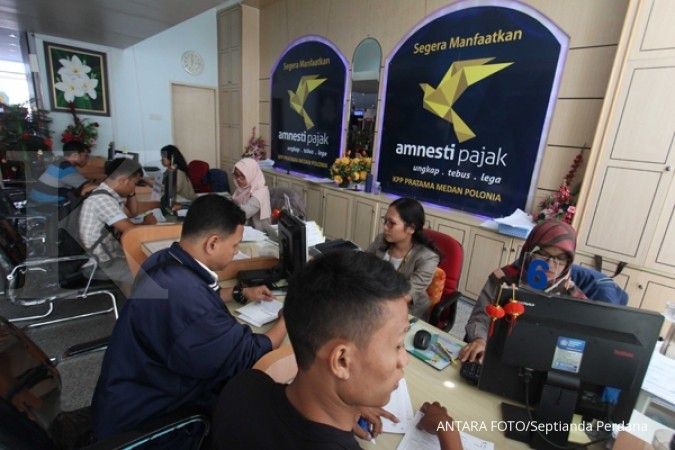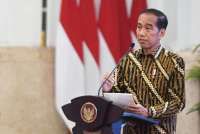JAKARTA. With less than a month remaining before the end of the tax amnesty, the government may need to accept the reality that it will miss its target for the flagship program amid slowing public participation.
The tax amnesty, which will end on March 31, has entered its third and final stage with an ambitious goal of reaching the targeted Rp 165 trillion (US$12.38 billion) in penalty payments.
As of Sunday, the figure in penalty payments based on tax payment letters (SSP), however, stood at Rp 113 trillion, according to the Directorate General of Taxation’s data, meaning that the authority must seek another Rp 52 trillion in the next 25 days before the program concludes.
Many have been skeptical about the government’s ability to achieve the target in the absence of major efforts to lure more big taxpayers after most of them took part in the first phase of the program during the July-September period.
Faced with this hard task, the Finance Ministry’s director general of taxation, Ken Dwijugiasteadi, said that entering March, all regional tax offices had carried out daily public campaigns to attract more public participation in the amnesty.
“Public campaigns are still running. We conduct the events based on [taxpayer] segments,” he said last week, but declined to provide further details on whether the tax authority had set weekly targets for new participants.
Taxation Directorate General spokesperson Hestu Yoga Saksama, meanwhile, said 691,022 tax amnesty participants were recorded as of March 2. Yoga said that the authority had observed an “upward trend,” claiming that it had seen more than 4,000 new taxpayers signing up for the program every day.
The tax authority insisted the figure would continue to increase until the end of program as there was a problem of a culture of procrastination among Indonesians.
“In our culture, people tend to wait until the very last moment,” Yoga said.
Through the introduction of the nine-month tax amnesty program, the government hoped to repatriate billions of dollars citizens have parked overseas. The penalty payments are also expected to help close the gap in state revenue amid declining energy prices and a sluggish global economy.
Speaking to thousands of business players in a “farewell to the tax amnesty” event last week, President Joko “Jokowi” Widodo reiterated his call for businesspeople to take part in the program as this month would be their last chance to declare their assets and enjoy lower penalty rates of 5 percent.
Jokowi warned taxpayers who decided not to join the tax amnesty that the government was preparing law-enforcement measures to punish those owning undeclared assets, as mandated by the 2016 Tax Amnesty Law.
Article 18 of the Tax Amnesty Law stipulates that any undeclared asset owned between Jan. 1, 1985 and Dec. 31, 2015 will be considered as additional income and subject to a costly penalty, even three years after the program has concluded.
As the tax amnesty was not mandatory, the tax office’s Yoga said, there was a large number of taxpayers who chose to revise their annual tax forms (SPT) rather than join the program.
However, he reminded them that there would be certain consequences if tax officials found contradictory data between their reported incomes and lists of assets during the law-enforcement period post-tax amnesty.
Separately, Indonesian Employers Association (Apindo) chairman Hariyadi Sukamdani urged the tax authorities to improve services as there remained some technical issues on the ground that could discourage taxpayers from joining the program.
Experts also pointed out that Indonesia’s tax amnesty was deemed successful compared to similar programs in other countries, but it had failed to persuade taxpayers to repatriate substantial funds, one of the major goals stipulated in the Tax Amnesty Law.
Repatriated funds only amounted to Rp 145 trillion as of Sunday, far short of the targeted Rp 1 quadrillion. Meanwhile, declared assets reached Rp 4.43 quadrillion.
“Based on our study, there are taxpayers with declared assets worth at least Rp 700 trillion but who have declined to repatriate their assets,” Center for Taxation Analysis (CITA) executive director Yustinus Prastowo said, attributing their reluctance to a number of major rallies late last year in Jakarta.
In mass rallies in November and December last year, hundreds of thousands of Muslim demonstrators thronged the streets of the capital calling for the prosecution of Jakarta Governor Basuki “Ahok” Tjahaja Purnama for blasphemy. Subsequently the political tension rose and is believed to have deterred investors.
“The major rallies slowed the momentum [for asset repatriation],” Yustinus said. (Grace D. Amianti)










